Somewhat imbalanced depth but overall intersting

From the start this novel pulled me in, as I was intrigued by the format of three different points of view of women living during Hitlers reign in the US, Poland and Germany. It shows how these women navigated the trying political times, one as a debutante, one as a surgical doctor, and another as a prisoner at the dreaded Ravensbruck concentration camp. It did deliver, as I was pulled into different directions by these women, however I feel the pov's became imbalanced midway through.
Kasia and Herta's lives are so intrisically linked here, with Herta being an unwilling (at first) surgeon charged with performing medical experiments on Kasia and many other "rabbits" of Ravensbruck. Their pov's are so dependent on one another, and their paths are so dark, that when we jump to Caroline's high-society life in NYC, it became jarring and made me lose sympathy for this character in particular. I couldn't stop thinking "I just watched Kasia experience some true physical and emotional horrors, and I have a hard time feeling bad that your boyfriend is married, ok?" Although I did enjoy the character of Paul, and felt he was good for Caroline throughout, the relationship between them overshadowed a lot of what was so fascinating about this woman, particularly the magnitude of her altruistic work long after the last bomb fell.
One thing this book particularly succeeded in was making me realize how privileged in my life I am, sitting here, reading a book, searching for Pokemon, while genocide occurs in countries all over the world. Syrians are trying to escape their circumstances and being turned away, just like so many I am reading about in this book, and I'm here thinking "oh man I hope someone does something about that!" Which I recognize was exactly what those in Caroline's pov were doing. "Here have a check, a pity about Germany etc, where to for brunch?"
Something I found lacking was enough transition from unwilling doctor to what Herta became at the end, someone that saw it as "just doing her job." She eventually doesn't appear to see anything wrong with her actions, choosing her career prospects over her humanity, and I didn't get to follow her on that journey, even having access to her pov for much of the book. I recognize the narrative is fairly long, so adding much more to include greater depth could have made it gargantuan, but having all the pov's almost requires it.
It's a tricky thing, fictional accounts based on real people (Herta and Caroline in particular). You can get so much motivation and things from researching their letters, correspondence, journals, news articles, but how much personality/experiences/emotions can one add before you lose track of the people that lived, instead of what you're creating? This isn't a question I can answer, but I do wish the emotional experiences had balanced out better, as I feel it would have given me a greater connection to all.
As this was an audiobook, I must include how I felt about the narration. I think the right women were chosen to read these roles, as they all embodied Caroline, Herta, and Kasia with excellent grasps of the time period, language, culture, and personality.
Overall, I am glad I read this, even if just to learn something about these women I wasn't aware existed in history. It made me want to learn more about them, which I believe was the goal of the author. On that note, she succeeded. Those interested in similarly fictional accounts of Ravensbruck and women during WWII, be sure to also check out Code Name Verity and Rose Under Fire by Elizabeth Wein.
Welcome to the Wallops by Gill McKnight

An enjoyable read that is *almost* a great one. Jane lives in Lesser Wallop and has the unfortunate luck of having her ex-girlfriend move in right next door, under the guise of doing a writeup of an upcoming festival. Jane's job is on the line due to seemingly low interest from the locals, her deadbeat father is in town, and this is one more thing she didn't need right now.
This is a lighthearted romp that is missing more time dedicated to the relationship between Jane and Renata. I don't really need it to be a "this is all about romance" book, but there was kind of a quick switch from NOT love to love for me to really find believable. There were also some misused words and mistakes that could have been caught with one more swipe by a proofreader. Without the noticeable typos and with more 'screen time' to build Renata and Jane's interactions, this would be a five star read.
Aside from that, good humor throughout (as I expect from any Gill McKnight) and enjoyable characters. I anxiously anticipate the sequel, because Wendy was actually my favorite character in this one, even though she was secondary. Full of loyalty, joy and interesting textures, that one.
 1
1
The Book of Lost Things by John Connolly

Fairy tales for grown-up type people, like ME.
I read this probably back in 2007 and picked it up when I was sorely in need of a palate cleanser and it did not disappoint. I found more typos this go-round but it remains one of my all-time favorite books.
Take Austin Kleon's advice. Check out his website and his books, too. He has an awesome weekly newsletter, which is where I heard about this poster.
 1
1
Attempting to not suck so much
I have been AWFUL about updating here. Ever since goodreads stopped talking to this site my reviews have just been sitting there. I moved *some* over but omg it just takes too long and I'm too lazy and life's too short and blah excuses blah.
On the plus side, I've been reading a lot more lately (and less lesfic) which made me remember "oh right there's a lot of excellent stuff out there I forgot!"

Endless Days of Summer by Stacy O'Steen
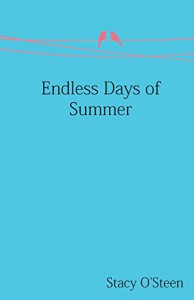
Penelope is a young woman ready to start college, and falling in love with her best friend, Summer. The story is largely a continuous cycle of Penelope’s angst over being emotionally manipulated by her unavailable best friend. Penelope is finding herself, learning about asexuality, and meeting new friends.
The dialogue overall isn’t bad, but there are quite a few times characters speak like clinical psychologists instead of 19 year old college students. It could get quite mechanical and not particularly believable. The book is primarily about Penelope learning more about who she is, but everything about her feels more like a reaction to everyone else. She tends to move forward as a reaction against something, as opposed to an indicator of any personal growth until the very end. Secondary characters use emotional manipulation at some/many points in the book, which got tiring, particularly how quickly Penelope forgave them their transgressions. Additionally, there are some fairly drastic personality changes involving Summer and Penelope’s mother. It didn’t feel believable, as I didn’t get to watch any of their personal growth until they were suddenly very different people.
By the end, I felt very little empathy for any of the characters. Although at the beginning I did like Penelope (and her friends Alyssa and Nate), the ease with which she felt into the same trap over and over made me lose my patience with her. I think the general idea of the book was interesting and I was excited to read a book with an asexual character, although the execution of it was lacking.
Heyday by Marnie Woodrow
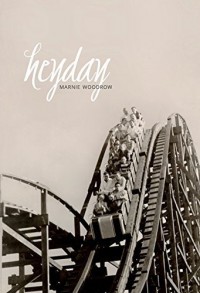
Overall, a very enjoyable read that I feel like could have been a bit stronger with some tweaks, but that stuff might not bother anybody else but me.
For full review, head over to C-Spot
Backcast by Ann McMan
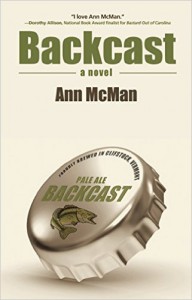
The beginning starts by introducing Barb, a metal sculpturalist contracted for a multi-layered show featuring feminist-centric essays and accompanying artwork. To that end, she brings together a cadre of characters to meet for a writing workshop at her cousin’s Vermont resort. There is a plethora of good humor from the start and excellent characterizations throughout. The story is primarily light-hearted interspersed with poignant essays written by these quirky women. Some essays are heart-wrenching, others are lighter, but all can be taken as a master class of how to cut to the heart of deep issues in a minimum number of characters. This was even more interesting for the reader because you never find out who wrote which essay until the end glossary. I want to read it again now that I’m armed with the knowledge of their deepest secrets, which I believe will make their reactions to circumstances even more enthralling.
The group of authors meeting together, some finding love, others finding opportunity, and still others are on the search to discover themselves. All are believably flawed and interesting for different reasons. Although this is in every way an ensemble piece, some women get more of a spotlight than others. Which was fine, as to give everyone the same screen time would have greatly inflated what is a surprisingly cohesive account.
My only real complaint was the overuse of character names. This was primarily noticeable with the frequent mention of one character in particular: V. Jay Jay. I get the joke, her name is humorous, though only really after a few mentions. After that I started to cringe every time she came onto a scene, which is unfortunate, as she was one of my favorite characters. Once Darien began calling her “Vee” I was hopeful it would switch to that, as everyone else was going by their first names/nicknames, but that never happened. I think I counted at one point 5-6 V. Jay Jay mentions in a single page, which was just way too much (and not just with her name, but all the characters I came to realize received the same treatment). I do understand why one would think repetitive mentions are necessary, as there are a lot of individuals to keep track of. However it all just became excessive. Aside from that, this was a very original story that was able to evoke an incredible depth of emotions in me, which is uncommon in a story with such a quirky cast. It doesn’t hurt that it features some good-natured ribbing at the lesfic genre as well. Do all the subplots get tied up perfectly? Mostly. Were there characters I didn’t feel like I got to spend enough time with? Certainly. But I highly recommend this one all the same. It was unexpectedly complex, and an absolute pleasure to read.
 1
1
Your Little Red Book by EJ Runyon

I didn’t really find the characters particularly likable and couldn’t see what Maureen and Lexy saw in each other. A lot of the story was somewhat difficult to discern, and many passages I needed to re-read several times before moving on (and often still didn’t get it but I just kept going anyway). There seemed to be a lot that the author counted on the reader figuring out themselves, obscure connections that I just couldn’t follow. This and Lexy’s unconventional pov was just all too much to wade through for me.
Full review over at C-Spot Reviews
 1
1
Times of Our Lives by Jane Waterton

These friends were all adorable together, had each others backs (even when they didn’t want them to) and made me laugh with their antics throughout. A sweet story about women in the twilight of their lives, and I’m glad I read it. Those of you I’ve heard complaining about the lack of romance storylines for women of a certain age, pick this one up as there’s plenty to warm your heart cockles.
Full review over at C-Spot Reviews
A Small Country About to Vanish

A truly moving novel of lost love set against the turmoil of Israeli politics. Complex characterizations and intriguing premise that was a pleasure to read. Some issues with the ending, could have been better fleshed out but the writing was top notch!
Full review can be found at Curve Magazine
 1
1
Alice in Wonderland by Lewis Carroll

I'm glad I decided to read this as an adult. So much whimsy, so much fun wordplay. Rushing right into Looking Glass, as I'm not sure I'm ready to leave a world where anything is possible, and probable, and likely not to make much sense. But then, it shouldn't!
 1
1
My Sister's Grave by Robert Dugoni

Tracy Crosswhite is a hardened homicide detective who has never recovered from her sister's disappearance 20 years ago. There are many things she wishes she could change, particularly how the trial and evidence were handled while convicting Edward House for Sarah's murder. Too many questions remain unanswered, and she will never stop asking them. This culminates in the dramatic discovery of her sister's remains, leading to another trial for House and some unexpected twists along the way.
The story is told somewhat in three parts. First we find Sarah's remains, and follow Tracy as she doggedly uncovers evidence that supports her misgivings from long ago. She has lost so much of her family over the years, and this case is her only comfort. She feels a blinding urgency to finally uncover what happened to her sister, thereby ignoring all warnings and threats to remain quiet. There's something going on, that much is obvious from early on. And some things is plain to see, but the reasons behind them won't be discovered until the very end.
This book kept me guessing more than any I've read in a long while. I was convinced it was one person, had a full writeup explaining why it would definitely be him. I picked out the red herrings, plotted out exactly what I thought would happen, based on the hundreds of crime shows/movies/books I've read in the past. I was totally wrong. It went somewhere I was not expecting and can't believe I couldn't pick it out before.
There were some editing issues that definitely should have been hammered out (dropping this down to 4 stars). Repeated phrases and explanations that were beyond superfluous (e.g., "ah yep there's a fire see, I think they used gas!" "Hey I heard there was a fire, do you think they used gas?" "Hey Chief, over here, you see I think they used gas for this."). Aside from that though I couldn't resist getting the next one to keep going. I very much enjoyed Tracy as a character, and she made me really want to keep following her around. I like how her mind processes things without overdoing her reasoning.
Overall very enjoyable twist, and I was happy to find out there's more to read!
 1
1
Her Final Breath by Robert Dugoni
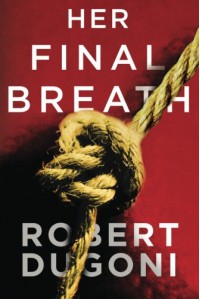
I'm kind of between 3 and 4 stars on this one. It was a good book, still really like Tracy and her no-nonsense attitude. I feel like it didn't really make me super tense like the first one did, but I also think the writing might have been stronger in this one (less mistakes and repetitive phrases overall). Strong mystery components, good twists, though I actually forgot some suspects names this go-round, so at the big reveal I went "wait, who?" That could just be because I got distracted by packing to move, though, and put it down for a week before getting there. Or it could also be that there were one too many names to remember as potentials, hard to say.
Either way, I'll probably read the third at some point, just not right this second. I need to wait a bit to give more space from the first one (it just had such a great twist, it's hard not to compare to that).
 1
1
Winner for Williamson

I was hesitant to read this book for several reasons... I saw all the great ratings and reviews and was immediately skeptical. I also read the author's first published book many years ago and didn't care for it much at all - again for several reasons. And lastly, I'm still not sure how I feel about published fan fic when it's so very obviously fan fic. I regularly debate this last one with myself and friends. It certainly makes me much more critical of the published version, at the very least.
With all that right out there, I enjoyed this book a lot. I have a soft spot for well done Rizzles fics (Rizzoli and Isles) and I thought the author did a great job of capturing the spirit of those characters. I'm also pretty sure that if I had no idea who the characters in this book were based off of, I'd still have had a very enjoyable experience - maybe even moreso. I don't think I would have really gotten why Nora was so out of touch with popular culture - unless I missed that in the book, which is possible I suppose.
I thought the protagonists had a good deal of depth - which doesn't seem to happen as often as it should in published fan fic - and the secondary characters weren't flat either. The dialogue was good and flowed well and the story arcs were interesting. I liked pretty much the whole damn thing. I wish it had been different enough from the show that I would have been able to not see Jane and Maura and everyone else in the characters but it was a good, fun read. I enjoyed the author's voice which seemed so much different from her first book.
I'm glad I finally caved to peer pressure and read Blurred Lines and I honestly look forward to reading the next in the series.
When it Raynes by CD Cain
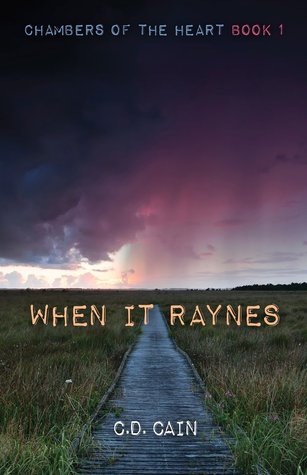
Rayne Amber Storm is a recent graduate with a bachelor’s in biology, on a summer break at home in Louisiana before starting medical school. She spends her days with her beloved Meemaw while dodging her mother’s schemes to marry her off. Throughout the narrative, Rayne is struggling with her self-identity and how she fits in the world, but nothing seems to ever grow from that, and a satisfactory resolution to these issues is missing. She’s questioning her sexuality and relationships, but she’s passive in how she handles both. The secondary characters are poorly developed, Grant in particular. He serves as a one-dimensional obstacle without the benefit of interesting characteristics. In addition, Rayne seems to have trouble communicating her feelings, which stagnated many of the interactions in the book for me. However, I liked Meemaw the most (even with her inconsistent dialogue).
Overall, the writing itself is problematic, particularly in the overly flowery language that lacks execution and comes across as nonsensical metaphors.
If you want to read my full review, feel free to head over to C-Spot Reviews
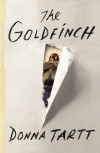





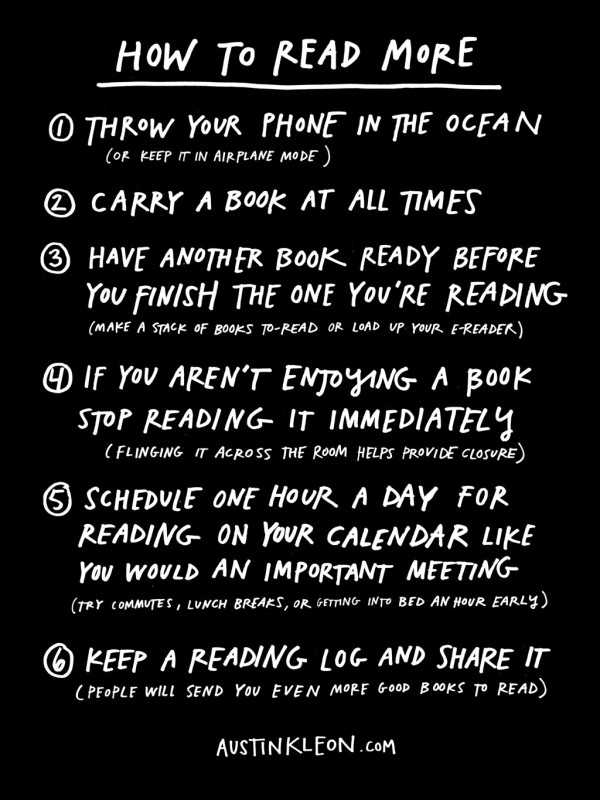
 4
4